published: 27 /
10 /
2011
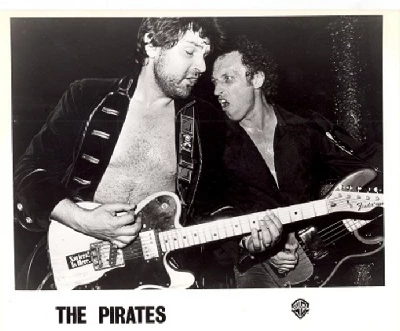
70's rock 'n' roll band the Pirates were formed out of the remnants of 60's icons Johnny Kidd and the Pirates and have recently had released a new box set. John Clarkson speaks to singer and bassist Johnny Spence about his band and friendship with founder member, the late Mick Green
Article
When Mick Green died in January 2010 a month short of his 66th birthday after a long illness, British music lost one of its best known session musicians.
Green spent the 1980s and 1990s touring the world and recording with Paul McCartney, Bryan Ferry and Van Morrison, but will always perhaps be best known as the guitarist in the early 60’s rock ‘n’ roll group Johnny Kidd and the Pirates.
By the time Green joined the Pirates in early 1962, shortly after Johnny Spence (bass guitar) and Frank Farley (drums), both of whom he had grown up with him in Wimbledon in South London, Kidd, another Londoner, had already had his biggest hit with a previous incarnation of the group and the 1960 number one hit, ‘Shakin’ All Over’.
The Green-Spence-Farley line-up of the Pirates, however, remains the definitive version of the band. Green’s fiery guitar work and ability to play the lead guitar and rhythm guitar simultaneously was an influence on both the Who’s Pete Townshend and Wilko Johnson, the guitarist with Dr Feelgood. They also became a very visual act, having an effect on both Alice Cooper and Adam and the Ants. Kidd, who wore an eye patch over his eye, would wave about a cutlass on stage, and he and his band, all of whom wore nineteenth century pirate costumes, would perform in front of a huge backdrop of a pirate galleon.
Green left Johnny Kidd and the Pirates in 1964 to join Billy J. Kramer and the Dakotas, while Spence and Farley stayed on with Kidd until in early 1966. In 1976, ten years after Kidd was tragically killed in a car accident later on in 1966 and shortly after forming another incarnation of his band, the New Pirates, Mick Green, Johnny Spence and Frank Farley reformed, calling themselves the Pirates.
The Pirates’ swaggering and raucous brand of rock ‘n’ roll made them an instant success on their native London live circuit and was embraced by the punk movement. The trio, who continued to wear pirate attire on stage, signed a deal with Warner Brothers with whom they released two albums, their half live, half studio-recorded debut ‘Out of Their Skulls’ (1977) and its follow-up, ‘Skull Wars’ (1978), before moving to independent label Cube Records to release their third album, ‘Happy Birthday Rock ‘n’ Roll’ (1979).
They broke up in 1982, but Green and Spence from 1999 continued to play together sporadically as the Pirates, eventually without Farley who retired from live work due to ill health in 2005, and recorded a last studio album, ‘Skullduggery’, together in 2006.
This year has seen a release of two disc, fifty two track box set, ‘Shakin with the Devil-the Best of the Pirates 1977-1979’, which has come out on the reissue label Salvo Music, and, beautifully packaged, contains the first three studio albums and also rare and unreleased tracks.
Pennyblackmusic spoke to Johnny Spence about Kidd and Mick Green, the Pirates and his current band, Johnny Spence and Doctor’s Orders.
PB: You, Mick and Frank all became part of what was best known line-up of the Pirates. Is it true that you had all known each other since you were children?
JS: Yes, I knew Mick and Frank since I was about the age of about fourteen. Mick was a bit younger than us. He was about twelve when we first met (Laughs).
PB: How did you first become involved in music?
JS: I got my hands on a guitar when I was about fourteen and learnt a few chords, and then one morning there was a knock on the door and there was a little kid standing there in short trousers with a guitar in his hand and he said, “Are you Johnny?” and I said, “Yes. Who are you?” “Mick Green. I have heard that you know the start to ‘Cumberland Gap’. Can you teach me?”
I was the first one to give Mick Green a guitar lesson, and we were friends from that day on and for over fifty years. It developed from that. We formed a skiffle group with Frank on drums which eventually became a rock ‘n’ roll group, and after a few years Johnny Kidd picked up on us.
PB: Johnny Kidd and the Pirates had various hits during your time in the band including ‘A Shot of Rhythm and Blues’ and ‘I Will Never Get Over You’. You never recorded an album. Why was that?
JS: There weren’t that many rock ‘n’ roll bands putting out albums really. It was more the middle of the road acts that were doing that. For the rest of us, our career was all based on singles. The record company wanted hit singles, one after the other, and albums weren’t a big deal for rock ‘n’ roll acts, at least not at our label EMI anyway.
PB: All the Pirates in your line-up and also the other line-ups were employed as session musicians. Yet you ended up with the legal rights to the name. How did you manage to do that?
JS: By 1966 the work was beginning to dry up. Mick has already left and Frank and I said to Johnny Kidd, “Well, maybe we should go and try to do other things,” and he basically said, “Good luck. You can use the name the Pirates.”
We had already recorded a single in 1964 on our own as the Pirates which was ‘My Babe’ and ‘Casting My Spell’, and so we retained the name and Johnny got a new band and called them the New Pirates, leaving us to carry on as the Pirates.
PB: What did you do in the ten years before reforming the Pirates in 1976?
JS: I did a bit of semi pro work with Frank Farley, just weekend stuff, and then we had this idea to phone Mick and see what he was doing, and he had just come back from Las Vegas where he had been working with Englebert Humperdinck. He was a session musician even then and went on after the Pirates broke up in the 1980s to do a lot of stuff with McCartney and Bryan Ferry and people like that.
He wasn’t doing anything at that time, and we said, “Let’s get together for the hell of it,” and we played a couple of pubs and things like that. We didn’t plan to do any more than that, but then Roy Carr from the ‘NME’ booked us for their Christmas party and it all took off from there. We got rave reviews and a record deal with Warner Brothers more or less straightaway. We were given quite a big advance from them, which gave us some stability for the next few years.
PB: You weremthe singer in the Pirates. How much singing had you done prior to that?
JS: Well, I used to do a bit of a warm-up before Johnny Kidd came on, about a quarter of an hour act just to warm the audience. That was all that I had done. One of us had to sing and I drew the short straw.
PB: Johnny Kidd and the Pirates were a big influence on various bands of the 1960s such as the Who, and then in the 70s other bands such as Alice Cooper and especially Dr Feelgood. When did you first become aware that you had become such an influence on these acts? Was it at the time or was it years later?
JS: It was when we reformed in the 70s. The first inkling we had of it was when we heard the Feelgoods. I remember being in the house one Saturday morning and I had the radio on, and this track came on and I thought, “Bloody hell. That sounds like the Pirates,” and that was the Feelgoods. Then it came out that Wilko Johnson had sort of styled himself on Mick and that their bass player, John B. Sparks, had also taken a lot of his influences from my riffs.
PB: All three Pirates albums combined together cover songs and original songs. A lot of the songs were written by Mick and yourself. Did you have a format for songwriting?
JS: No, we would just sit down and have a few drinks, and Mick would start playing a riff and I would get on the bass and we would think about lyrics. There was no format. We just took it as we came.
PB: Your first album, ‘Out of Their Skulls’, was half recorded live and half in the studio. Whose idea was it to do that? Was it yours or was it Warner Brothers?
JS: I think it was Warners, but our strength was live gigs. That was without a doubt and so that was why they wanted a live side.
PB: Both that album and its follow-up, ‘Skull Wars’, were produced by Vic Maile, whose first job had as a producer had been for Dr Feelgood with ‘Down by the Jetty’. Was he offered the job because of his work with Dr Feelgood?
JS: Yes. We had to choose a producer and we thought, “Well, Vic Maile did a great job with the Feelgoods.” That album has a nice, raw, edgy sound, so we thought, “Why not?”
PB: There is a lack of overdubs on both of those albums and a live feel even on the studio tracks.
JS: We weren’t in too much overdubbing. If you do a lot of overdubbing, you can’t really produce it on stage live, so we always took that into account. Having said that though, on our last album, ‘Happy Birthday Rock ‘n’ Roll’, we used an American producer, Bill House, and there were quite a lot of overdubs on that. A lot of the songs there we didn’t, however, use for live gigs.
I think that the first album, ‘Out of Their Skulls’, was the best album that we did. It was recorded in a very small studio with a lot of very small equipment, while the albums after that were done in massive studios and with lots of equipment. To me personally, however, they didn’t seem to capture the edge of that first album.
PB: You were adopted by the punks. Did that come as a surprise to you?
JS: It was a big surprise, but we had to step up to the mark with that audience because if we had played it like we did in the 60s it would have been too weak for them. They were very a very aggressive audience, so we upped the tempo and the volume and they loved it.
There were still a lot of Johnny Kidd and the Pirates fans out there, so when we did gigs they wanted to hear Johnny Kidd songs and so we included them in the act. We didn’t forget our 60’s roots, but we did the songs a lot heavier than they were done in the 60s. We didn’t go punk as such. We just put the energy the punk bands did into what we did.
PB: The Pirates toured America and played both headline slots and also support slots with Van Halen and the Doobie Brothers, yet you were dropped by Warners, allegedly because of a vinyl shortage in 1978. What was that about?
JS: I don’t know. I haven’t got a clue. I think they dropped us because we weren’t selling the albums that they required. They gave us a massive amount of money upfront, and I think that they felt they hadn’t got enough back from us in return for that. At the same time I think they didn’t give it long enough though.
PB: You split up shortly releasing the ‘Happy Birthday Rock ‘n’ Roll’ album in 1979 on Cube Records. Why did you decide to split up then?
JS: I was the first one to drop out in 1982. The gigs weren’t so forthcoming and the money wasn’t there. I had a mortgage and a family and I thought, “I can’t beat myself about the head and keep going here. I have got to go out and get a proper job,” and so that is what I did.
Then the opportunity came to reform again in 1999 and we had another run for a few years. When Mick died at the beginning of last year, that finally did split up the band.
PB:. You did another final Pirates album, ‘Skullduggery’, in 2006 and there are various live recordings as well from that final era. Can you see there being more Pirates reissues at some point in the future?
JS: I would think that it is probably exhausted now, but you never know. If someone wants to do it, that is fine.
PB: Who are Doctor’s Orders whom you are now playing with?
JS: They are a great band from Finland. They supported the Pirates over the last few years when we were working in Finland, and I got on well with them and I thought, “Well, I will see if they want to do something,” and they jumped at the chance.
I did a few gigs with them and fronted them. I flung the bass away and was just singing with them, and then we had the idea of doing an album. That came out a couple of years ago and is called ‘Full Throttle No Brakes’. It got into the charts over there and into the Top 20, and created a lot more live work. We have just put out a new album over there called ‘Hot Rocket’
PB: Do you write original material?
JS: On ‘Hot Rocket’ I co-wrote about three of the songs with Doctor’s Orders. There are a lot of covers on that album, but we have done them in a different style
PB: How much time do you spend in Finland?
JS: I go over six or seven times a year. I am over this weekend. Then I have got two weeks off and then I will go over again. I really enjoy it. I am coming up for 70 in January, and so I only do what I want to do. I don’t do too much, just enough.
PB: Have you ever brought Doctor’s Orders over to Britain?
JS: Well, I keep thinking about it. It is a money issue and a matter of logistics because I would have to fly three guys over. If we get the right gigs I would love to bring them over. They are gagging to do something,
PB: And final question. How do you look back on your time with both Johnny Kidd and the Pirates and the Pirates?
JS: It has been a great career. I loved being with Johnny Kidd. I was a youngster coming up through the music business and getting the chance to play with Johnny Kidd was great because I was a fan of his anyway. Then to move on to be with the Pirates in the 70s was a bonus, and again in the last ten years to be able to do it all over again has been fantastic. I love live gigs. I want to keep doing them now as long as I can and people want to come and see them.
PB: Thank you.
Picture Gallery:-
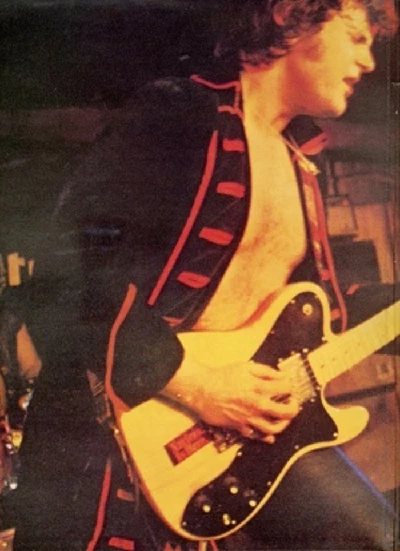
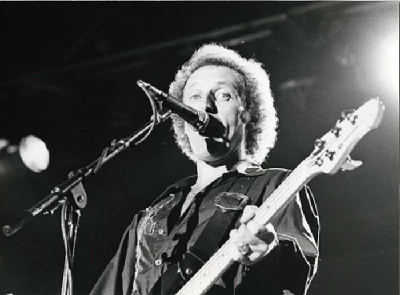
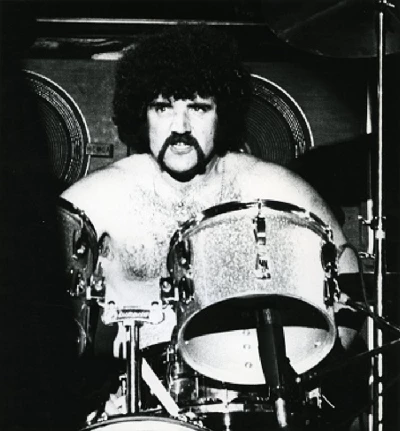
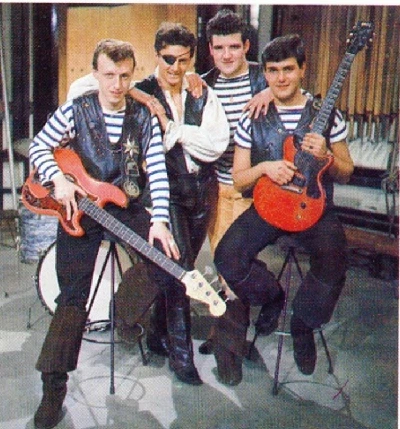
Visitor Comments:-
|
|
919 Posted By: Steve Rogers, Totnes, Devon, England on 19 Apr 2020 |
I've saved this web page to read again!
|